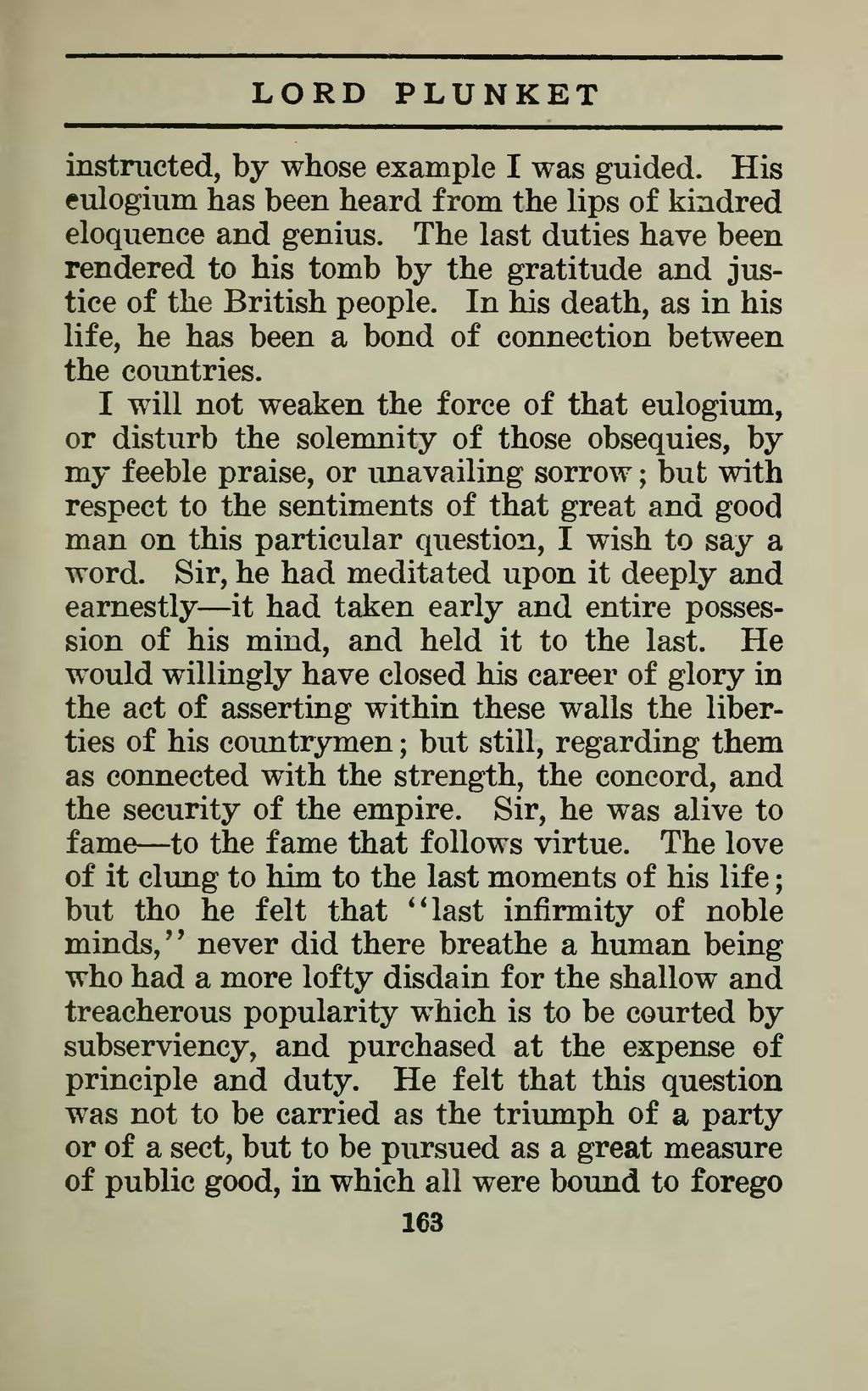LORD PLUNKET
instructed, by whose example I was guided. His eulogium has been heard from the lips of kindred eloquence and genius. The last duties have been rendered to his tomb by the gratitude and justice of the British people. In his death, as in his life, he has been a bond of connection between the countries.
I will not weaken the force of that eulogium, or disturb the solemnity of those obsequies, by my feeble praise, or unavailing sorrow; but with respect to the sentiments of that great and good man on this particular question, I wish to say a word. Sir, he had meditated upon it deeply and earnestly—it had taken early and entire possession of his mind, and held it to the last. He would willingly have closed his career of glory in the act of asserting within these walls the liberties of his countrymen; but still, regarding them as connected with the strength, the concord, and the security of the empire. Sir, he was alive to fame—to the fame that follows virtue. The love of it clung to him to the last moments of his life; but tho he felt that "last infirmity of noble minds," never did there breathe a human being who had a more lofty disdain for the shallow and treacherous popularity which is to be courted by subserviency, and purchased at the expense of principle and duty. He felt that this question was not to be carried as the triumph of a party or of a sect, but to be pursued as a great measure of public good, in which all were bound to forego
163
